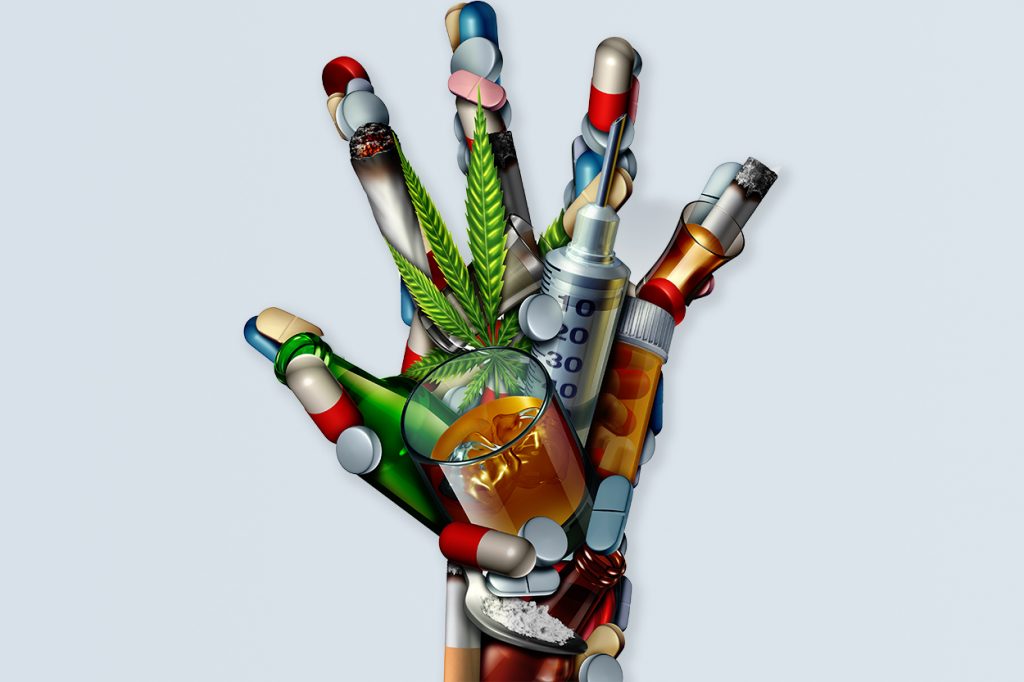Substance abuse, specifically alcohol and drug addiction, is a pervasive issue that extends beyond the individual, affecting families and society as a whole. This phenomenon, often referred to as the “Ripple Effect,” represents the far-reaching and multifaceted consequences of addiction. Substance abuse can lead to a cyclical pattern of harmful behaviors, emotional instability, and financial strain, creating a complex web that influences every aspect of an individual’s life and the community they are part of.
In this article, we’ll explore the Ripple Effect and how it can contribute to issues such as poverty, domestic violence, and mental health problems. We’ll also discuss ways that families can help mitigate the damage from substance abuse and support individuals on their journey toward recovery.
How Substance Abuse Can Impact Families
When someone abuses alcohol or drugs, the effects can extend to everyone in their family. This may include behaviors such as neglecting household duties, lashing out verbally and physically at other family members, withdrawing from relationships, and having financial troubles. Additionally, individuals who abuse substances are more likely to experience depression and anxiety; these mental health concerns can also disrupt family relationships.
Families may also struggle with the stigma associated with substance abuse, often feeling shame or embarrassment when discussing the issue with others. To help their loved ones overcome addiction, families must be able to open up and discuss what they are going through in an honest and supportive way.
How Substance Abuse Impacts Society
The impact of substance abuse doesn’t stop at the family level; it can reach far beyond and affect entire communities. When people become dependent on alcohol or drugs, they may engage in criminal activities to obtain money for their addiction. This leads to an increase in crime rate as well as economic strain from legal fees and incarceration costs.
Substance abuse can also lead to increased domestic violence, as individuals under the influence may be more likely to lash out at their partners or family members. This can have a ripple effect on children, leading to emotional trauma and behavioral issues that require additional support services.
Mitigating the Impact of Substance Abuse
Fortunately, there are ways to help combat the negative effects of substance abuse. Families can work together to support their loved ones in overcoming addiction by advocating for them in treatment and providing emotional support. Additionally, communities can provide resources such as public health initiatives, job programs, and counseling services to help individuals on their journey of recovery.
On an individual level, it is also important to remember that addiction is a mental illness and requires professional help. If you or someone you know is struggling with substance abuse, reach out for help and support as soon as possible.
For those located in Boise, there are several drug rehab programs available to help those struggling with addiction. These services can provide invaluable resources for individuals on their journey toward sobriety and support for family members.
Why It’s Important to Address Substance Abuse
Addressing substance abuse is critical to creating healthier, more supportive communities. Not only does it help to reduce the number of people struggling with addiction, but it also has a positive ripple effect on issues such as crime and domestic violence. By providing resources for individuals and families affected by substance abuse, we can create an environment that is conducive to recovery.
Addiction is a complex issue, and there is no easy solution or one-size-fits-all approach. However, by working together and utilizing the available resources, we can help to create a more stable and supportive environment for those affected by substance abuse.
Conclusion
Now that we’ve discussed the Ripple Effect of substance abuse and ways to mitigate its impact, it’s important to remember that recovery is possible — even from severe addiction. With the help of family members, friends, medical professionals, and other community resources, individuals can find their way back from a life of addiction and start on the path toward sobriety.
No one should feel ashamed or embarrassed to talk about substance abuse, and we must come together to support those affected by this issue. By working together, we can create an environment of understanding and compassion around addiction and help individuals take the first steps toward healing.



